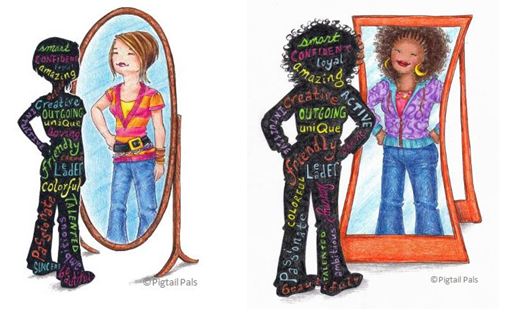“Thangachi’s Corner” is a monthly feature that discusses relatable topics and issues relevant to the Canadian Tamil youth of today. For more information about this feature or to suggest a topic, feel free to e-mail us at blogs@ctya.org!
Written By: Keerthana Raveendran
I heard one of the most alarming statements recently.
I teach a group of first graders Physical Education twice a week—little six-year olds, with relentless smiles (even when you’re yelling at them) and more energy to spare than I ever imagined. They enjoy running in races, playing Octopus and having any opportunity at all to mess around with the Phys-Ed equipment. Tiny little people, who tell intriguing stories at school that probably make their parents cringe at home. It’s okay though, because they’re miniscule and adorable, and it’s hard not to find that kind of honesty refreshing.
I’ve heard a lot of problematic comments in my short time as a teacher, but a little girl, though, one of the smallest in that bunch, uttered one to me the other day that proved to be one of the most disturbing thus far:
“I wish I was skinny… My mom wants to be skinny, and me too—we want to be beautiful.”
And isn’t that one of the most heartbreaking remarks you’ve heard from a six-year old?
Body image is one’s perception about one’s body. It is often linked with self-esteem and leads to feelings of inadequacy when negative. Body image tends to be influenced by one’s capabilities, what is perceived in the media, and of course, family.
That’s right—just as your eye colour or aptitude for a second language might be a hereditary trait, you may be also passing along to your kids a negative body image. Children are incredibly perceptive beings, and parents who vocalize negative feelings regarding themselves tend to raise kids who do the same.
That’s what left me flabbergasted in the middle of a Phys-Ed class, staring at a wide-eyed six-year old as basketballs bounced around us. It took me about three seconds to recover—I felt my response would momentarily shape this child’s perception of body image, and I wasn’t going to let an opportunity like that pass by without making a change worthwhile:
“Skinny?” I responded. “Forget about being skinny! What’s really important is being strong and healthy and happy. That’s what we should care more about, don’t you think? That’s why we do exercise and play games in Phys-Ed—to make our hearts strong and healthy. You’re beautiful just the way you are!”
When we speak about our bodies in front of young, impressionable minds, we should put greater emphasis on ability rather than appearance—because what’s more important is how our bodies will work for us as we age, not how we will appear to those around us. It is imperative for parents to recognize their roles in making this happen, ensuring that their children don’t hear negative language that they may end up repeating in the long run.
Any good parent believes that their child is the most beautiful creature on the planet, and that child naturally, in a mirror effect, believes the same of their parent. But the second that parent starts doubting themselves, the child does the same. Just as you would never tell a child of all their miniscule flaws, try not to express your own; we all have our little insecurities, but we should leave them in silence upon accepting that hefty responsibility of parenthood. You would only end up perpetuating a cycle of self-hate otherwise. That little six-year old girl is an example of the negative ways in which the parent-child mirror effect works.
And one comment made by a Phys-Ed teacher to value one’s body for what it can do rather than how it appears? That’s probably not going to make much of a difference when you’re hearing a completely different story every day at home. But that still didn’t stop me from having that little girl repeat what she’d learned that day to the entire class in the last five minutes before the bell. Parents have such a strong pull on issues such as these, and as teachers, we can really only do so much to help.
The fight against negative body image is a long standing one—and with the negative portrayals of the media, it is only getting worse. We need to do our best to send to our kids a positive message about self-esteem so that they can love themselves in a way that we may never have done ourselves.
I don’t know about you, but it’s time to break this cycle of self-hate.
Author:
 Keerthana Raveendran, known by her flock as Thangachi, is an aspiring author whose motivation to write usually kicks in when she’s supposed to be occupied elsewhere. She is an avid procrastinator who sees potential novel ideas as movies in her head. Maybe one of these days, they’ll make it onto the page. Thangachi is currently a teacher with the Toronto District School Board and a student with York University, studying English for her Master’s degree.
Keerthana Raveendran, known by her flock as Thangachi, is an aspiring author whose motivation to write usually kicks in when she’s supposed to be occupied elsewhere. She is an avid procrastinator who sees potential novel ideas as movies in her head. Maybe one of these days, they’ll make it onto the page. Thangachi is currently a teacher with the Toronto District School Board and a student with York University, studying English for her Master’s degree.
Read More by Keerthana!
“Back Home”
“What is Your Background?”
“Dance Culture”
“Vanakkam: More than Just a Word”
“Tamil Titles: Yes or No?”
Tags: body image, children, lessons, phys-ed class, School, self-hate, thangachi's corner, Youth


